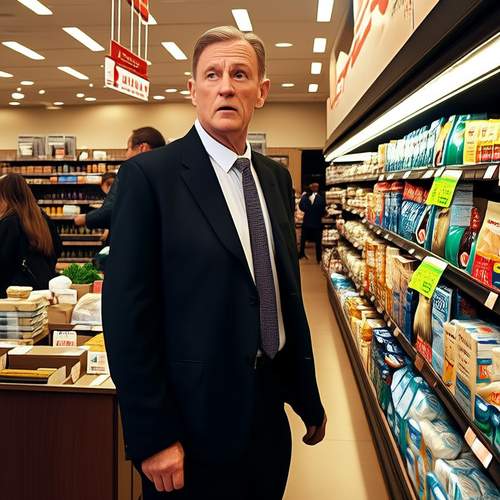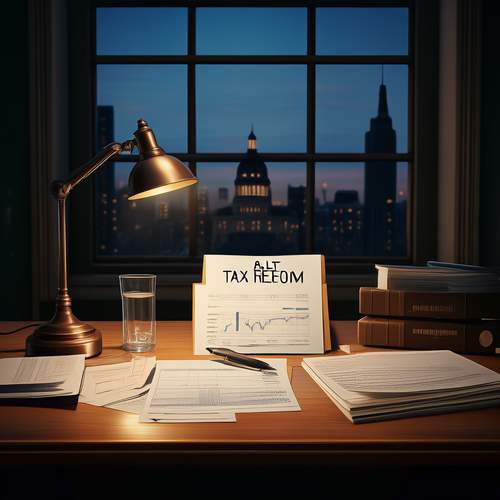In the dynamic and competitive world of retail, Target, a US retail giant, has recently found itself in a precarious situation. The company has slashed its expectations for the year after experiencing a sharp decline in sales, which it attributed to a "highly challenging environment" exacerbated by the introduction of trade tariffs. This downturn has been compounded by a significant backlash following Target's decision to end its diversity, equity, and inclusion (DEI) targets, a move that has stirred considerable controversy.
The Impact of Tariffs
Target's sales slumped by 5.7% in the three months leading up to May, a period marked by heightened economic uncertainty due to trade tensions. Unlike its rival Walmart, which primarily focuses on essential grocery items such as bananas, milk, toilet paper, and shampoo, Target's big sellers are mostly non-essential goods like home furniture and beauty products. The company sources a significant portion of these products from China, with 30% of its store-label goods originating from the country. This dependency has left Target particularly vulnerable to the impact of tariffs.
US President Donald Trump has imposed tariffs on many countries since taking office, aiming to encourage businesses and consumers to buy more American-made goods. While this policy is intended to boost US manufacturing and job creation, economists have warned that it could lead to higher prices for consumers. The US and China have recently agreed to a truce to lower import taxes on traded goods, but US import taxes on Chinese products remain higher than before, at 30%. This ongoing trade tension has created a complex and challenging environment for retailers like Target.
Navigating the Tariff Challenge
In response to the tariff-induced cost increases, Target is exploring various strategies to mitigate the impact. Brian Cornell, Target's CEO, emphasized that pricing decisions would depend on the company's efforts to source more products within the US and reduce its reliance on China. "That is going to play a very important role," he said, highlighting the importance of diversifying supply chains to insulate the company from tariff-related risks.
Target's chief commercial officer, Rick Gomez, outlined the company's approach to managing the tariff challenge. He mentioned that Target is negotiating with suppliers and expanding its supplier base beyond China, as well as adjusting the timing and quantity of orders. "These efforts are expected to offset the vast majority of the incremental tariff exposure," he said. This multifaceted strategy aims to balance cost management with the need to maintain competitive pricing and product availability.
The Controversy Over DEI Policies
While tariffs have posed a significant economic challenge, Target has also faced a public relations crisis following its decision to end DEI targets. In January, the company announced it was ending its DEI targets, a move that has been met with widespread criticism. The Trump administration's opposition to such policies has led many companies to cut back on initiatives, but Target's decision has been particularly contentious due to its previous commitment to diversity and inclusion.
The backlash has been intense, with a group of shareholders, led by the City of Riviera Beach Police Pension Fund in Florida, suing Target earlier this year. The lawsuit alleged that Target had defrauded investors by concealing the risks associated with its DEI policies. The controversy was further fueled by a 2023 backlash over LGBTQ+ merchandise at its stores, which led to a drop in both sales and stock prices and sparked boycotts.
Brian Cornell acknowledged that the reversal of some DEI policies played a role in the first-quarter performance, although he could not quantify the exact impact. The decision to end DEI targets has not only affected Target's financial performance but also its reputation as a progressive and inclusive retailer. The company's previous stance on diversity and inclusion had earned it a loyal customer base, and the sudden change has led to a loss of trust among many of its supporters.
The Road Ahead
As Target navigates these challenges, it faces a delicate balancing act. On one hand, it must manage the economic impact of tariffs and maintain profitability. On the other hand, it needs to address the public relations fallout from its DEI policy reversal and rebuild trust with its customers and investors. The company's future success will depend on its ability to navigate these dual challenges effectively.
Target's strategy to diversify its supply chain and negotiate with suppliers is a crucial step in mitigating the impact of tariffs. By reducing its reliance on China and sourcing more products domestically, Target aims to insulate itself from tariff-induced cost increases. However, this strategy will require careful execution to ensure that product quality and availability are not compromised.
In terms of DEI policies, Target will need to reassess its approach and find a way to balance its business objectives with its commitment to diversity and inclusion. This may involve re-evaluating its DEI initiatives and communicating more transparently with its stakeholders. Rebuilding trust with its customers and investors will require a genuine commitment to addressing their concerns and demonstrating a renewed dedication to inclusive practices.
Target's recent struggles highlight the complexities of modern retail in an era marked by trade tensions and evolving social expectations. The company's experience underscores the importance of adaptability and strategic foresight in navigating economic and social challenges. As Target moves forward, it will need to rely on its core strengths while addressing the areas where it has fallen short.
The road ahead for Target is undoubtedly challenging, but it is not insurmountable. By effectively managing the impact of tariffs and recommitting to its values of diversity and inclusion, Target has the potential to regain its footing and continue to thrive in the competitive retail landscape. The lessons learned from this experience will be crucial not only for Target but for other companies facing similar challenges in an increasingly complex global economy.




















